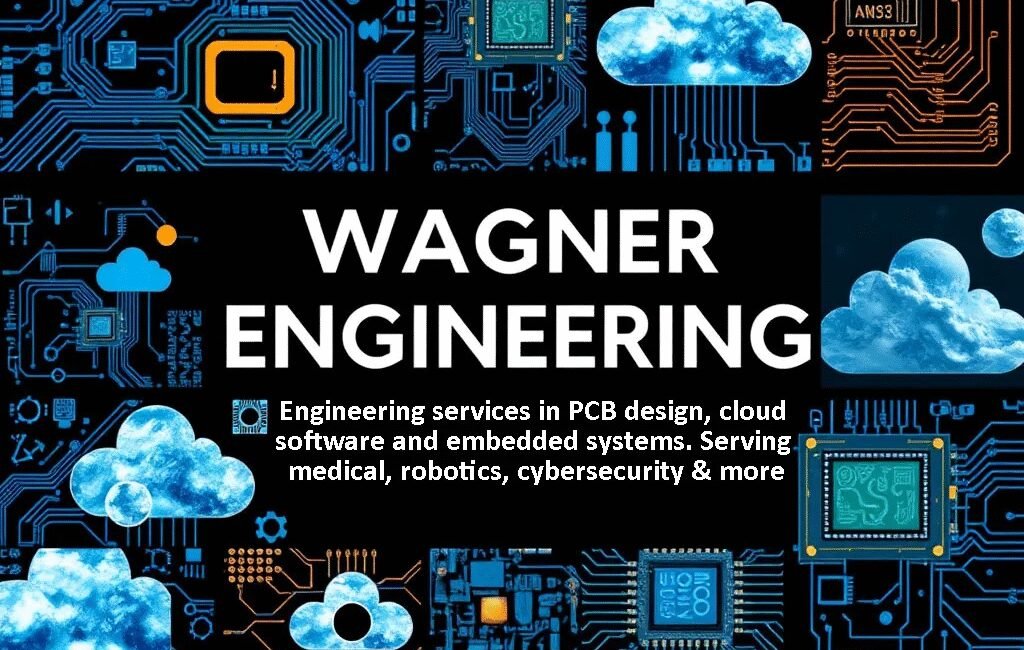
When devices operate in increasingly complex and interconnected environments, Firmware development services become the critical foundation—bridging electronics and functionality. At Wagner Engineering USA, firmware isn’t just code—it’s intelligent engineering that seamlessly brings hardware to life.
What Sets Wagner’s Firmware Services Apart
Embedded Expertise, Industrial Legacy
Founded by Dylan Wagner—an electrical engineer and embedded systems specialist—Wagner Engineering draws from deep experience in firmware, software, and electronics design for major firms like Northgate Technologies and HySecurity
System-Level Integration
Wagner unites PCB design, firmware, software, and cloud infrastructure into a unified engineering workflow. Firmware is developed with a full awareness of hardware constraints, communication interfaces, and update pipelines—minimizing integration friction
Quality and Longevity
Every firmware package is built atop rigorous QA protocols, including validation of power consumption, safety features, error-recovery routines, and long-term update paths
Wagner’s Firmware Development Workflow
-
Discovery & Requirement Capture
The process begins with a strategic discovery. Engineers define system needs—hardware specs, sensor types, communication protocols, power requirements, and environmental constraints—to craft firmware aligned with real-world usage. -
Module Design & System Architecture
Firmware architects collaborate with PCB designers to map initialization flows, peripheral drivers, and update frameworks. This ensures clean code, reliable performance, and hardware-aware logic. -
Firmware Implementation
-
Bootloader modules with support for over-the-air (OTA/FOTA) updates
-
Drivers for SPI, I²C, UART, ADC, PWM, Ethernet, BLE, CAN
-
Real-time or bare-metal control loops optimized for safety and timing
-
Power-management routines for battery efficiency and resilience
-
-
Integration & System Testing
Firmware is tested on actual hardware or emulators—functional, power consumption, error handling, and sensor calibration are evaluated. Firmware integration with embedded devices, edge hardware, and cloud services is fully validated. -
Quality Assurance & Automated Validation
Each code release undergoes CI/CD pipelines, code reviews, unit testing, regression testing, and compliance checks to ensure robust deployment readiness. -
Secure OTA Update Infrastructure
Reliable update mechanisms—including delta updates, rollback protection, and secure boot—allow firmware upgrades in the field without physical access. -
Ongoing Support, Optimization & Maintenance
After launch, Wagner monitors firmware performance, delivers patches, adds functionality, and supports diagnostics workflows—ensuring longevity and reliability.
Benefits of Partnering with Wagner’s Firmware Development Services
Full-Stack System Coherence
Unlike siloed firmware houses, Wagner provides firmware built in direct coordination with electrical, software, and cloud layers—reducing mismatches, bugs, and deployment delays.
Security & Reliability Built In
With secure bootloaders, encrypted OTA flows, auditability, and system resilience, firmware from Wagner is designed for safety and compliance.
Hardware-Intelligent Coding
Firmware modules are tailored for limited memory, constrained power, and performance-sensitive sensor platforms—ensuring operational efficiency.
Future-Proof Functionality
OTA/FOTA paths, modular architecture, and versioning strategies mean devices remain updatable throughout their operational lifecycle.
Collaborative Delivery
Wagner maintains transparent client collaboration—through regular updates, prototype reviews, and feedback integration, keeping projects aligned with stakeholder goals
Real-World Use Cases
-
IoT Sensor Devices & Field Hardware
Devices equipped with temperature, motion, or environmental sensors—firmware handles data acquisition, sleep modes, encryption, and remote updates. -
Robotics & Control Systems
Firmware orchestrates motor control, feedback loops, sensor fusion, and inter-module communications in industrial or mobile robotics. -
Automotive & CAN-Bus Applications
Secure, compliant firmware enabling ECU-level control, diagnostic reporting, bootloader-based FOTA, and CAN/BUS communications. -
Industrial Automation & Embedded Control
Reliable firmware managing safety interlocks, real-time sensor behavior, networked control, and predictive diagnostics. -
Legacy Device Modernization
Older hardware retrofitted with upgradable firmware architecture—blending new features, remote updates, and secure control without redesigning the entire device.
Workflow Overview at a Glance
| Phase | Key Activities |
|---|---|
| Discovery & Planning | Scoping device use, communication tech, development constraints |
| Architecture Design | Bootloader strategy, driver layout, module APIs & update logic |
| Firmware Build | Implement core control loops, drivers & power logic |
| Integration Testing | Validate functions on hardware, cross-check cloud/device behavior |
| QA & Automation | Run unit, integration, security tests within CI pipelines |
| Deployment & OTA Rollout | Secure update channel, firmware image versioning, rollback readiness |
| Support & Evolution | Field performance monitoring, feature rollouts, security patches |
Why Choose Wagner Engineering USA?
With a founder deeply rooted in embedded engineering and leadership experience across firmware, software, and hardware—Wagner Engineering USA delivers comprehensive firmware development services built from the ground up
Their multi-disciplinary design ensures firmware aligns with PCB schematics, cloud services, and software ecosystems—creating seamless, interdisciplinary technology experiences.
Partnering with Wagner means getting firmware that is secure, maintainable, and built to evolve as your product matures.
If you’re searching for Firmware development services that deliver precision, reliability, and full-stack integration, Wagner Engineering USA offers a uniquely engineered approach. From strategic discovery to long-term support, firmware from Wagner is designed to be secure, scalable, and deeply integrated with hardware and systems architecture.

